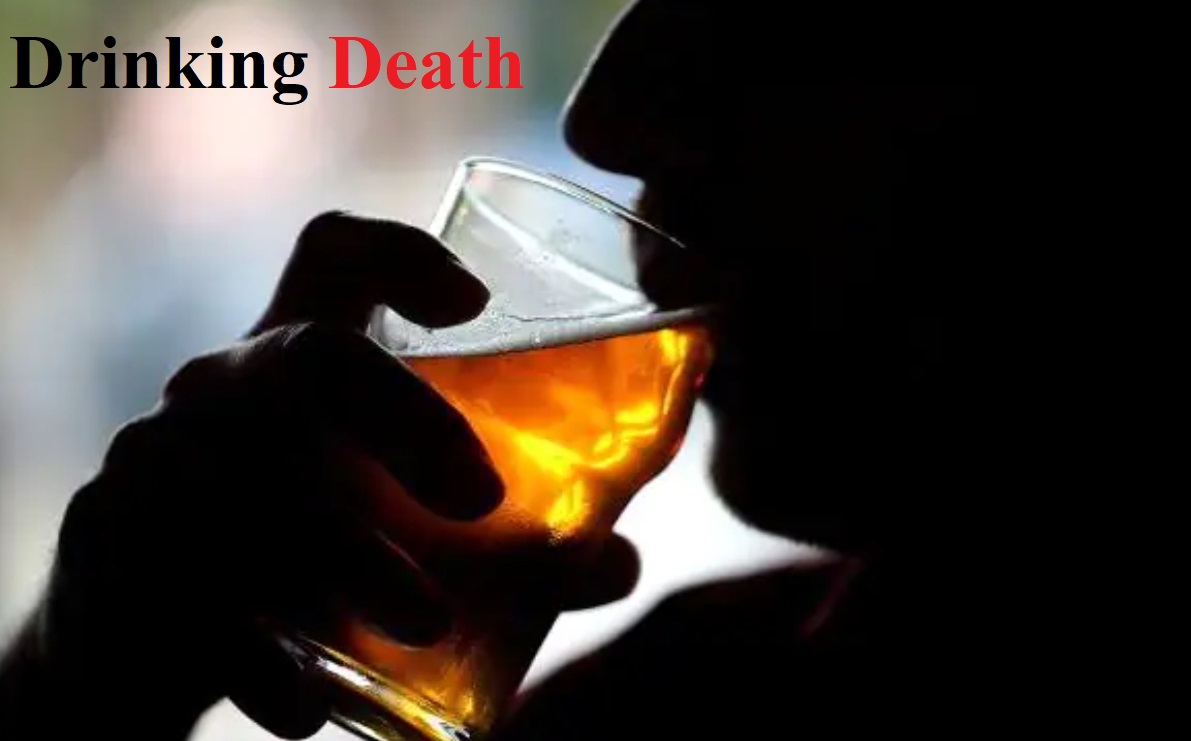
Killings of many due to the poisonous liquor has a question and a message too..
When there is a debate in the country on the relevance of Bihar’s alcohal ban, few lines of a poet come to my mind – Tabasra kar rahe hain duniya par / Chand bachche sharakhane mein.
The truth is that despite prohibition, Bihar has become a liquor bar and Chief Minister Nitish Kumar’s insistence or conclusion is that ‘If you drink, you will die!’ Alas! Chief Minister Nitish Kumar would have told this to those who died after drinking alcohol prior to their death. A campaign would have been launched in entire Bihar with a message that liquor ban is necessary. Alcohol deteriorates the health, destroys the family and ‘if you drink alcohol, you will die!’
Can a sermon be a message when the death toll due to spurious liquor has reached more than 70 and there is mourning in their families? Bihar is such a state where the voices of political parties on the liquor ban have been united from the beginning. All parties have supported the prohibition. Still, how can anyone support the incident of death by drinking spurious liquor?
Inspite of prohibition, indiscriminate sale of liquor is also a bitter truth of Bihar. Every political party feels the bitterness of this truth. Those who are in opposition today in Bihar, were in power yesterday and those who are in power today, were in opposition yesterday. But, one thing that is significant, Nitish Kumar has been in power continuously for the last 17 years. Therefore, he cannot absolve himself of the responsibility connected with the consumption of spurious liquor and the death caused by it.
CM Nitish Kumar has not only given the statement – ‘If you drink, you will die!’, but he has also says that “No compensation will be given to those who die after drinking alcohol”. Nitish Kumar’s stubbornness seems to be more obstinate than a principled insistence. Bihar is the land of Gautam Buddha, where hatred towards crime is taught, not towards the criminals. The crime does not end with the death of the criminal or after killing them. Criminals are taught to opt for reform.
Drinking is bad, alcoholics are also not good since they drink. But, these boozers have not killed anyone. They have lost their lives. It may be wrong to say ‘ they have lost their lives’. These alcoholics have been murdered. They have been fed poisoned liquor. Who are the killers?
• Are the murderers the only ones who sold spurious liquor?
• Are they not murderers who have allowed poisoned liquor to be sold?
• Is Nitish Kumar, who has been the Chief Minister for 17 years, and his government not guilty?
• Are the allies of the NDA and the Mahagathbandhan, who were in the government with Nitish, not guilty?
Giving compensation to the relatives of the deceased will encourage drinking. And this is a sheer intellectual bankruptcy. Compensation is not compassionate, it is the right of the family of the deceased. There is no compensation for the deceased. Compensation is the duty of a democratic government, and also an atonement for the mistakes. Compensation is also a proof of the government’s commitment and responsibility towards the public.
CM Nitish Kumar has to understand that the Bihar government is not an insurance company to deny compensation for death due to drinking alcohol because it is not mentioned in the condition. The government is responsible for good governance. If prohibition is broken, Bihar government and Chief Minister Nitish Kumar will have to take responsibility for it. If this responsibility is realized, then compensation will also seem logical and the amount of compensation should also be such that it has never been given before. Only by doing this, Nitish government can show its seriousness towards prohibition.
The question is being raised that when the Nitish government is unable to implement prohibition properly, then why not reconsider this policy? Rethinking means ending prohibition. Liquor ban is applicable only in five states including Bihar in the country. Gujarat is also among them. But, a moral question also arises that what should be the lesson of this incident of death by drinking poisonous liquor – is it to end liquor ban or to strengthen liquor ban?
According to the National Family Sample Survey 5, despite prohibition, Bihar has a higher consumption of alcohol than many big states like Uttar Pradesh, Rajasthan and Maharashtra. While Bihar has 15.4 per cent people drinking alcohol, the consumption of alcohol in the above three states is 11, 13.9 and 14.5 per cent respectively. But, it is also noteworthy that after prohibition, the percentage share of alcohol drinkers has decreased.
If we talk about the figures of 10 years before and after five years of liquor ban in Bihar, then the fact of reduction in alcohol consumption gets confirmed. The biggest difference in this has been seen in the age group of 20 to 34 years. While in this category there was a decline of 3.7 per cent in the 10 years before prohibition, whereas there was a decline of 15.6 per cent in the five years after prohibition.
After prohibition in Bihar, 3.5 lakh cases have been registered from 2016 to October 2021 and more than four lakh arrests also have been made. During this period, it is claimed that the Bihar government has suffered a revenue loss of Rs 10,000 crore per year, reaching to Rs 50,000 crore in toto in the five years.
It is necessary to review that which of the following facts should be considered grave due to the prohibition of alcohol – the loss of revenue to the government and the decrease in the consumption of alcohol during this period. It is also true that liquor ban has created a parallel black system of corruption. But, the question is, if the consumption of alcohol is decreasing even being surrounded by the negative aspects, then why not emphasize on eliminating the side effects of the prohibition, instead of on ending the prohibition?
Is poisonous liquor not being made in the states where there is no prohibition? Is poisonous liquor not being sold there or is it not causing death? It is obvious that the incidents of selling and drinking spurious liquor or dying after drinking it, have nothing to do with whether liquor prohibition is in force in a state or not. It can also be said that in the states where there is no liquor ban and deaths are taking place due to drinking poisonous liquor, why not try liquor ban there? May be that could help change the situation there.
The country can take the incident of Bihar as a lesson. The way the implementation of the prohibition is important, in the same manner it is also important that it should be implemented it in a better way. Actually better implementation here is more important. If such a policy creates a situation of making, selling and drinking poisonous liquor, then it becomes necessary to reconsider it. But, we should also not forget that alcohol is such a fatal addiction of the society which is leading the youth towards destruction at many levels. Every year 2.6 lakh people are dying due to alcohol consumption in the country and it is necessary to think about pregmatic ways to stop it.


















